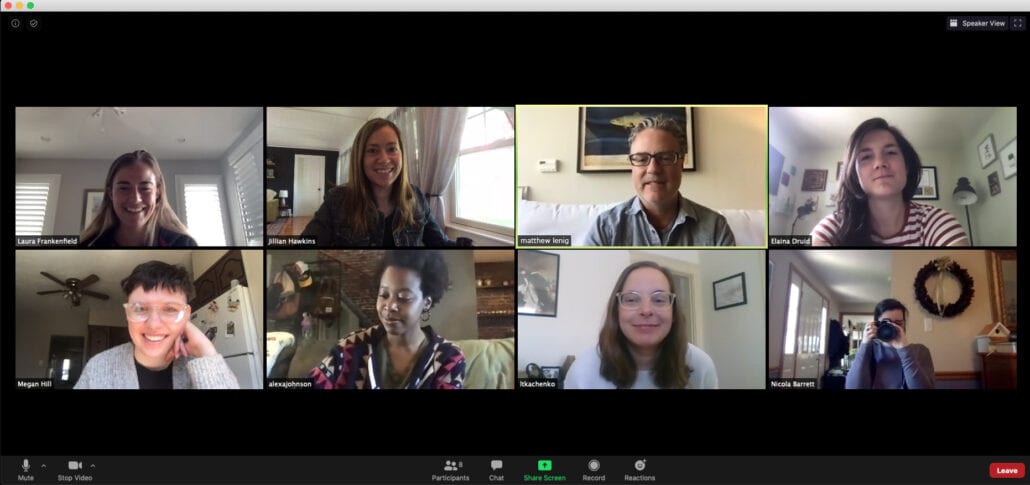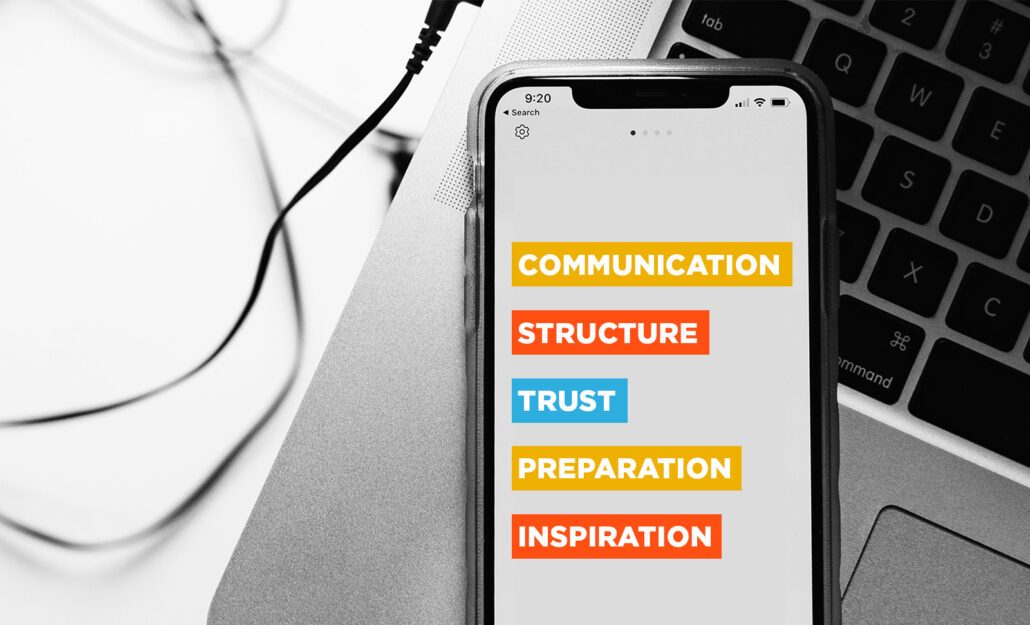Keeping Teams Creative in a WFH World
Many creative people have enjoyed a surge in productivity as they work from home. They are the true introverts and often create their best work when hunkered down in solitary confinement. They are rediscovering their library of creative books on art, design and copy and embracing the inputs they would never experience at work – their kids, their customized home office, neighbors, dog walks, cooking and even mundane things like the laundry. With all these new inputs, they’re finding they have fresher outputs.

Others have felt their creativity significantly diminish in this new environment. Let’s face it, there are real challenges to sheltering in place day after day, among them having to share workspace with family members or roommates, and for all of us tuning-out the negative and turning-up the positive.
So how do you keep your team – and yourself – humming creatively in a remote work environment? There are five main areas to consider: communication, structure, trust, preparation and inspiration.

Communication
Communication may be slightly more challenging as we all work remotely, but it is critically important to creativity. You need to keep open all the lines of communication so anyone can reach you when they need feedback, direction or motivation. When done correctly, it will greatly reduce the complexities of shooting and creating content remotely and guarantee the end result will meet or exceed expectations. Communication should always be two-way street where both listening and open discussion are critical to conceiving great ideas, designs, copy or content. Decide which communication channels work best for you and use them regularly.
Structure
Some creative people don’t like structure, but the more your team has, the better. Structure isn’t meant to confine or restrict creativity, it’s there to bring routine and discipline to the work. It also keeps everyone accountable to their deadlines and helps manage the overall work flow in the department. Without structure and operational excellence, your team’s creativity will never see the light of day.
Trust
Working remotely requires a great deal of trust. As managers, we need to trust that our team members are working hard and managing their time responsibly. I have found that when you trust your team, it goes a long way. The work is better because they’re not afraid of your criticism. They know you won’t micromanage but at the same time, they know you’ll always be available to talk through an idea or brainstorm a new direction.
Preparation
One aspect of creativity that may have improved by working from home is preparation. Teams should come to virtual meetings prepared. When you see a half-baked idea that hasn’t been fleshed-out, it’s very obvious in a virtual meeting – there’s simply no place to hide. To solve for this, ask your team members to hold creative pre-meetings to get through the unresolved aspects of the ideas and move past them. From there, the team can move forward with better, stronger, more focused ideas that will actually work. Perhaps all this working from home has actually made the creative process more efficient.
Inspiration
If you’re going to be creative, you need to be inspired. This shouldn’t end just because we’re not able to inspire each other in person. I have been listening to more music and watching more films during this pandemic than at any other time in my life. Whether you’re getting inspiration from music, film or your latest personal project, be sure to share it with your team. There’s no reason we can’t continue to inspire each other and develop amazing creative when we’re all working remotely.
